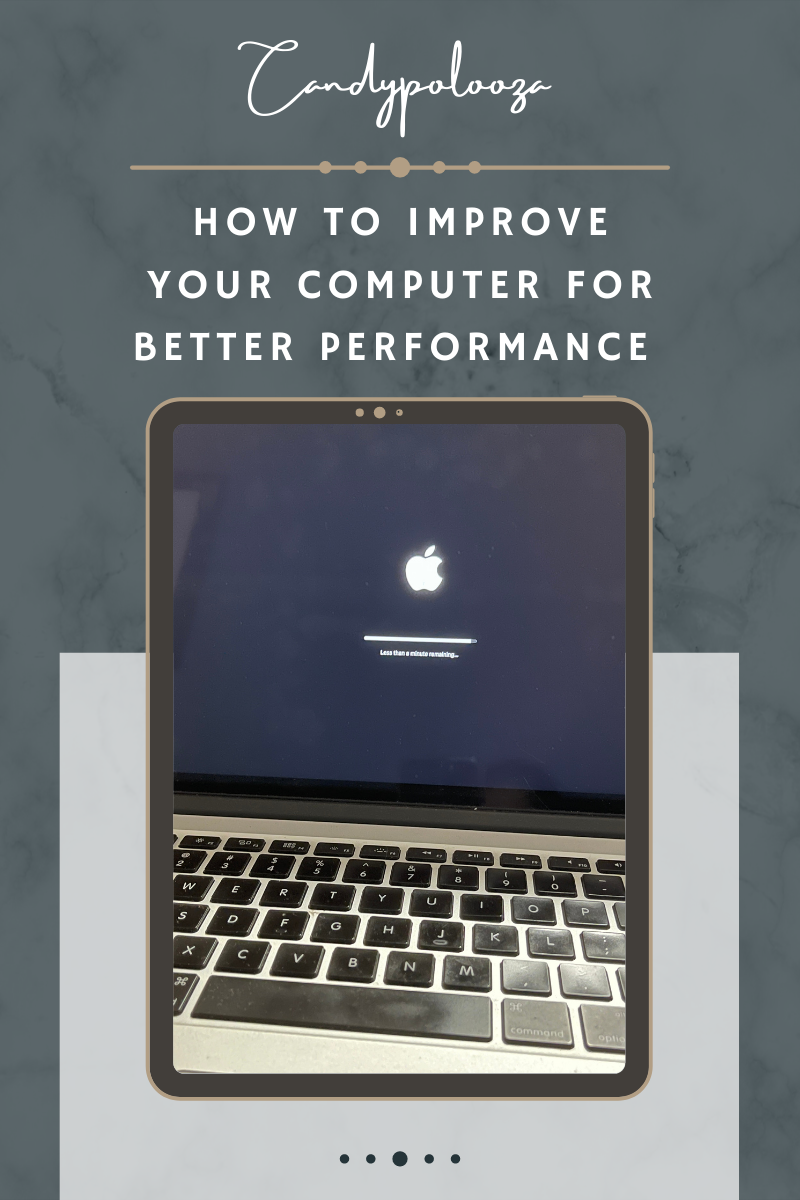Slower computing speeds are inevitable if you are a blogger and constantly use your computer. The computer responds to these changes as data, software, and storage space grow more demanding and significantly impact its performance. Your computer’s operating system can also affect its performance. While you can make some hardware enhancements to make it run quicker, some improvements are more cost-effective and straightforward to implement. These small changes will speed up your computer’s performance and allow your computer to run smoothly. Here are a few basic ways to improve your computer for better performance.
Free up space
It’s always beneficial to leave at least ten percent of your hard disk capacity free for your device to run smoothly. Cluttered disk space can cause unexpected termination of some background applications and even active applications. What’s more, every operating software hosted on your device will run slowly if you don’t manage your disk space. For example, you can face startup issues if you run a Mac OS on your device and don’t clean up regularly. To get started, you will want to ensure you keep tabs on your storage regularly.
Your files are organized in categories such as systems, Documents, Photos, and so on that can help you monitor the storage consumption of each type. If you’re running out of space and want to clean up your computer’s hard disk, various software can help eliminate rubbish, redundancy, duplicates, caches, and temporary files. This way, you can keep your valuable images, audio, video, and documents while also freeing up space on your hard drive by cleaning your computer.
Clear system cache and make browser adjustments
A system cache and cookies consist of temporary files created due to using programs and surfing the web, and browsing the internet. These files help with speed since they allow you to use the local content instead of downloading it from the internet every time. The data you collect when you visit different websites is also stored in your cache. Host websites use cookies to track your browsing habits, and any advertisements you click on will leave a cookie on your computer. These files are saved in a cache, and if you spend a lot of time online, they might accumulate and slow down your computer.
However, for unknown reasons, these files are not erased when they are no longer needed, and they amass in the system, wasting important storage space. Minor adjustments to your PC’s speed can often have a substantial impact. Depending on the browser you use, the rate at which online pages, movies, and graphics load might be reduced or sped up. If you’ve been experiencing lag when using one browser, consider switching to another to see if the loading speeds improve. When you’re surfing the web, it’s not only your web browser that might cause your computer to slow down. If your cache is full and hasn’t been purged in a while, check your settings to ensure it is empty. For example, clearing your Mac’s cache is the perfect way to speed up your laptop and prevent the Safari issue.
Checks for malware and viruses
When it’s practically impossible to avoid picking up a virus while surfing the web, the new Windows Defender program, for example, has made detecting malware that could be causing severe problems on your computer more accessible than ever. Third-party apps are straightforward to set up and can be just as successful in removing spyware or viruses from your computer. Some programs are stronger than others, and some may require more storage space, causing speed issues. You may find spyware removal software that’s speedy and doesn’t take up much disk space. It’s best to use two different types of software to keep track of your computer’s performance.
Malware cleanup software can assist with sluggish or evident performance issues or popups. Programs that provide constant protection and run in the background, on the other hand, should be evaluated. You will want to remember that antivirus software takes up space, so pick one that isn’t designed to slow you down. With a bit of search, you can find software that fits your budget and is compatible with your operating system. If you’re downloading free software, keep in mind that there may be compatibility difficulties, so double-check everything before installing it to avoid any speed issues.
Your computer is an important work tool that should be functional at all times. With these tips, you would optimize your computer’s performance to ensure productivity and efficiency.
